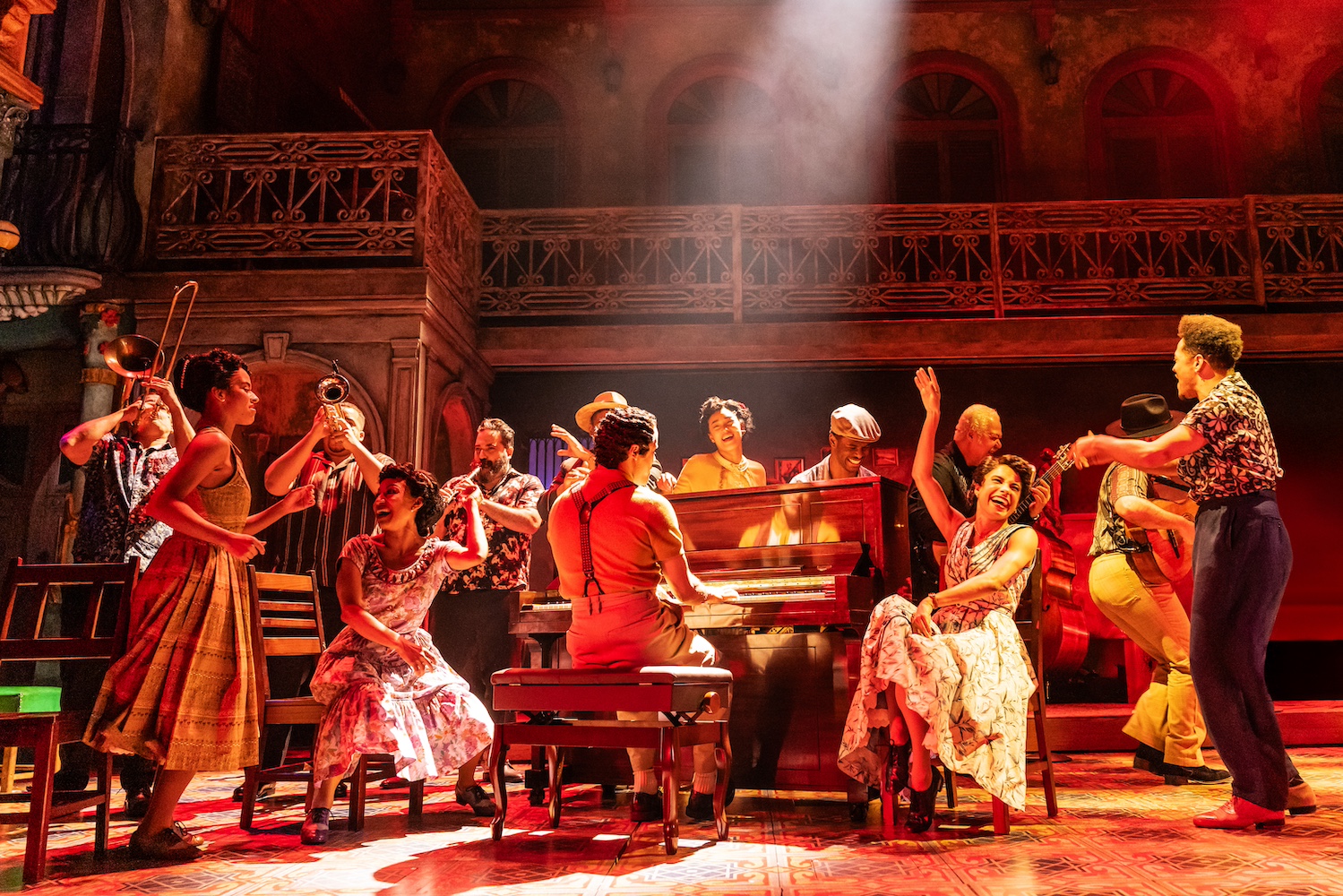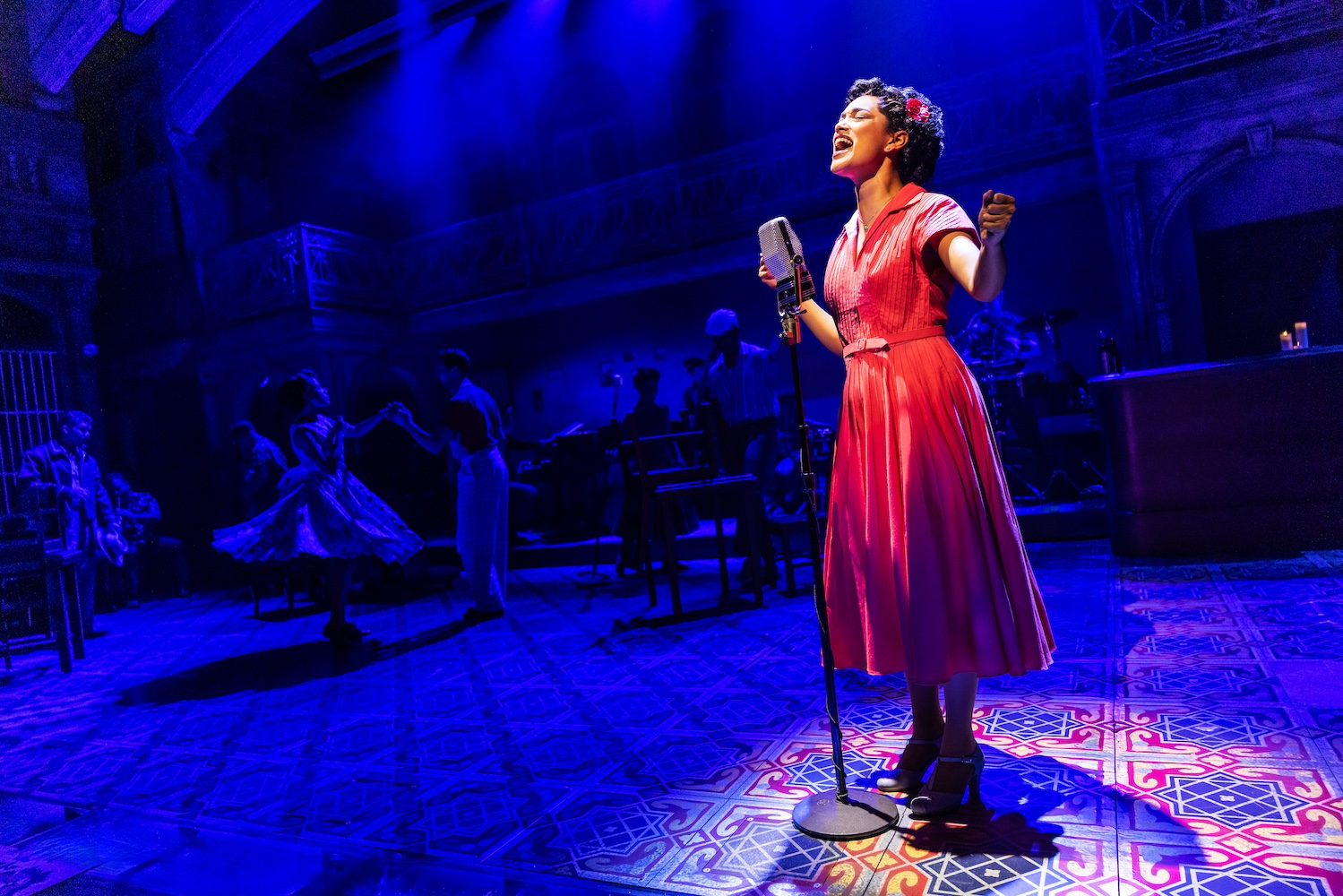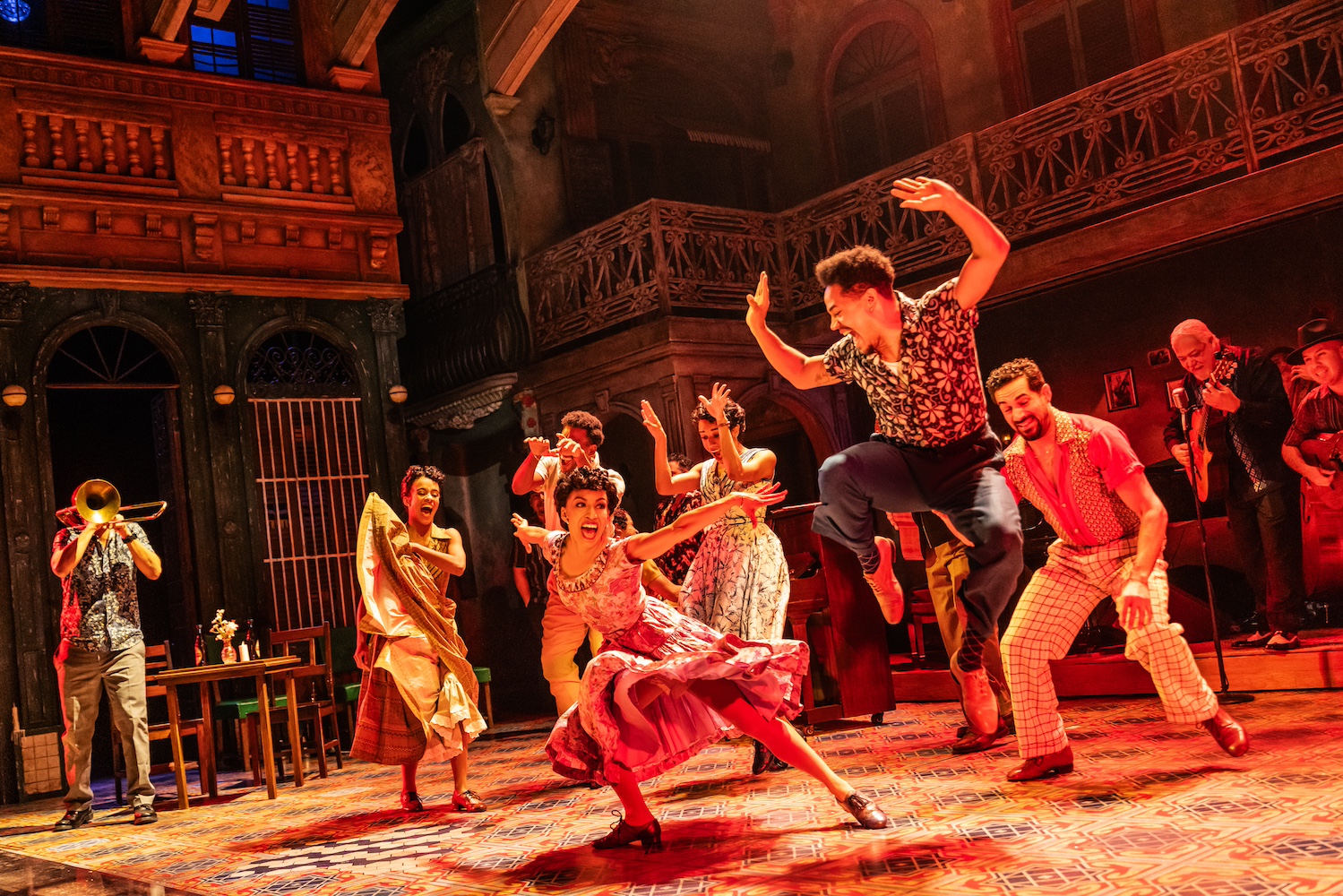****/***** (four stars out of five)
At the start of 2025, on the stage of the Gerald Schoenfeld Theatre, Cuban music returned to life. Not as a concert, and certainly not as a touristy tribute. Buena Vista Social Club, now a Broadway musical directed by Saheem Ali with a book by Marco Ramirez, is something closer to a séance—richly orchestrated, gently haunting, and just self-aware enough to understand that resurrection, on stage, is always more metaphor than miracle.
The production, based in part on Wim Wenders’ 1999 documentary of the same name, draws from a history so well-known in music circles it borders on folklore: the moment when Ry Cooder and Juan de Marcos González, in the mid-1990s, assembled a group of aging Cuban musicians—some long retired, others all but forgotten—to record an album that would go on to win a Grammy and sell millions. That album, like this musical, was built on longing: for the Havana of the 1950s, for a sound nearly lost to time, for a version of cultural memory that still had dust on its shoulders.
But the musical, to its credit, doesn’t get drunk on nostalgia. The structure is split across decades: one thread follows the 1996 recording sessions, the other revisits the ghosts of pre-revolutionary Cuba. What we get are not just characters but their younger selves, shadowing them across the stage. They watch each other with the kind of quiet recognition that makes even joy look like grief.

The cast doubles the central musicians with older and younger versions of themselves—Ibrahim Ferrer (Mel Seme/Wesley Wray), Compay Segundo (Julio Monge/Da’von T. Moody), Rubén González (Jainardo Batista Sterling/Leonardo Reyna), and Omara Portuondo, who is played with magnificent resignation by Natalie Venetia Belcon and, in youth, by the ever-burning Isa Antonetti. Their scenes feel less like dramatic set-pieces than like old photographs that have found a way to move again. You can almost hear the paper edges curling.
González, played by Justin Cunningham with the persistent urgency of someone trying to save history from the trash bin, is the closest the musical has to a protagonist. But it is Omara’s arc that gives the show its emotional logic. She is not interested in redemption—she’s already survived too much to need it. She is not trying to reclaim her youth—her younger self won’t let her forget it. Instead, she sings. And when she sings, the room forgets where it is.

There is a version of this show that might have leaned harder into plot: Will Omara show up to the session? Will she stay? Will she forgive her sister, Haydee (Ashley De La Rosa), for leaving Cuba behind? But Ali’s production is more patient than that. It understands that the real drama isn’t in what happens, but in how time warps the memory of it. In this way, the musical is not unlike Wenders’ film: it knows that to linger too long in sentiment is to miss the point, but that a little ache is unavoidable.
What keeps it honest is the music. “Chan Chan,” “Candela,” “Dos Gardenias”—all performed live, unaltered, in Spanish—aren’t background or atmosphere. They are, quite literally, the script. Lyrics function as monologue, rhythm as emotional punctuation. It helps that the band, situated in full view, plays like people who still believe in the material, and that Renesito Avich, as Eliades Ochoa, can rip into a tres solo with enough swagger to make the Broadway air feel tropical.
The production design is minimal, sometimes disarmingly so—more suggestion than illusion. A curtain, a shaft of light, a doorway through which a younger version of yourself might re-enter, or simply watch. The choreography, by Patricia Delgado and Justin Peck, glides where it could show off. A shoulder drop, a hand extended mid-bolero—gestures that don’t ask to be noticed, and so are.
There are moments when the show edges toward the familiar pitfalls of memory plays: over-explained ghosts, sentiment in search of weight. A discarded subplot involving smuggling has been rightly abandoned since its Off-Broadway iteration, but occasional scenes still sag with the burden of their own importance. The dialogue between Omara and her past self, though beautifully acted, sometimes leans on metaphor like a crutch.

But these are minor stumbles. What emerges, ultimately, is a show with the tact to be quiet where it could be grand, and the grace to know that revival doesn’t mean forgetting the cracks in the story. Buena Vista Social Club is not here to dazzle. It’s here to remember. Or more precisely, to wonder what it means to remember something that was nearly lost—and to know that the remembering might be enough.
Like the music it’s built on, the show plays in a minor key, but lingers in the body long after. Even when it ends, it doesn’t. Because from certain places—like Buena Vista—you may vanish. But you never stop listening.
Buena Vista Social Club. Open run at the Gerald Schoenfeld Theatre (236 West 45th Street, between Broadway and Eighth Avenue).











